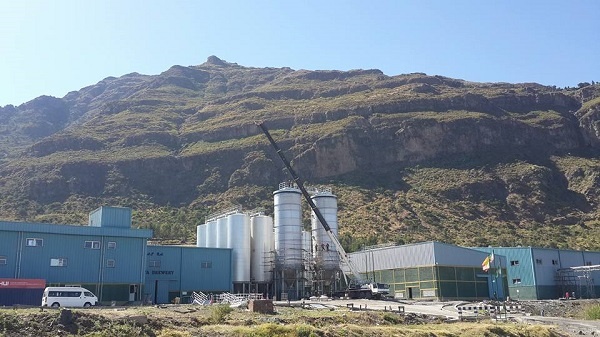
(World Bank) – The community in Enda-Mokoni Woreda in Tigray Regional State in Ethiopia, has long relied on natural spring water from the May-Muk micro watershed for daily water needs and to irrigate crops. But since the 1970s, increased demand for farmland, firewood and other natural resources degraded the watershed, threatening livelihoods and the community’s water supply, said farmer Hailu Birhanu. Help came for farmers like Mr. Birhanu via a partnership with a local brewery. The Raya Brewery is working with the local community and using its resources to help restore the watershed while also ensuring there is enough water to brew its beer. The partnership with Raya, which is owned by the brewing company BGI Ethiopia, is an example of how paying for environmental services can be a win-win both for the private sector and for local communities.
“We believe this project will benefit the community, will benefit Raya Brewery, and will change the ecology of the area” said Tewolde Asfaw, General Manager of the Raya Brewery Share Company. “The sustainability of the spring water means the sustainability of Raya Brewery is ensured. It’s protecting the environment and protecting the environment is the responsibility of everybody,” he added.
With support from the World Bank’s Sustainable Land Management Project (SLMP-2), a public-private partnership (PPP) was established on May 15, 2018, to rehabilitate the May-Muk watershed. A Memorandum of Understanding (MoU) was signed between the Ministry of Agriculture, Raya Brewery, Mekelle University, and the local kebele administration, outlining roles and responsibilities of partners in the rehabilitation of the watershed. The MoU also specified areas of cooperation and co-financing for the Bank’s follow-on Resilient Landscape and Livelihoods Project (RLLP). Mekelle University will conduct socio-economic and bio-physical assessments, which are crucial for evidence-based interventions in sustainable land management.
In the early rainy season of 2019, more than 350 ha of communal land was rehabilitated thanks to the soil and water conservation activities carried out by the local community, with Raya’s support. Raya Brewery paid community members 400,000 Ethiopian birr (roughly equivalent to USD 13,500) for these activities.
“I participated in the terrace construction and tree planting in my village since June 2019; I worked for three weeks and volunteered for 6 days in a month; I got paid 650 ETB for the days I worked. I have bought 3 chicken, each for 150 ETB, with the cash I earned,” said Mrs Lemlem Abreha, a mother of three.
Community members also created bylaws that clearly state the “dos and don’ts” of the landscape restoration effort, including a ban of open grazing which had previously damaged the land. To offset the resulting lack of fodder, Raya Brewery agreed to provide four dump trucks of beer production residue every two weeks (equivalent to 20,000 ETB per month) to feed the cattle.
Continue reading this story on The World Bank Group’s feature story.
